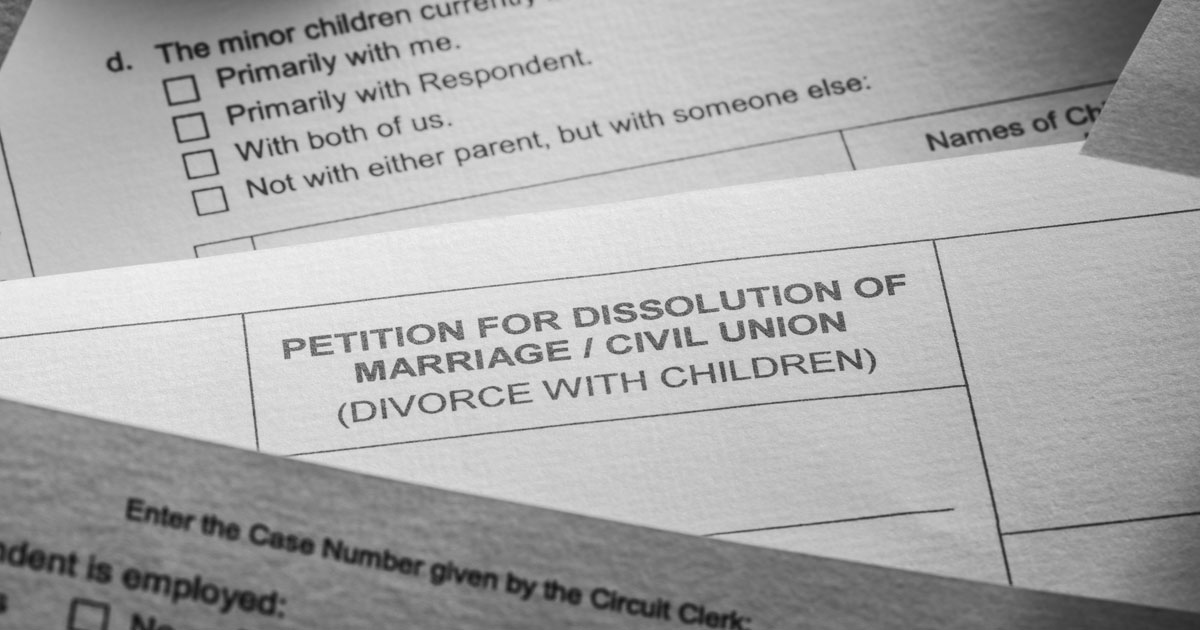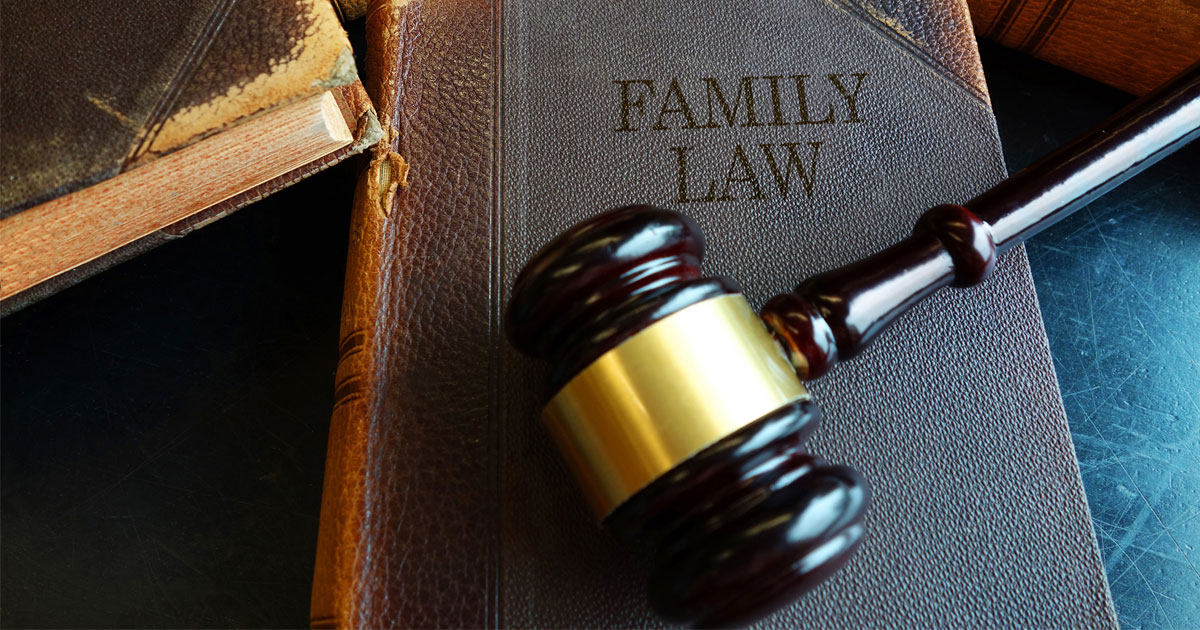No one wants conflict in their family, but life happens, and there is no shortage of family problems that can require legal intervention. From two people dissolving a marriage to addressing how to support a child, family law can be incredibly complicated and emotionally intense. At their core, family law cases involve people deciding matters close to their hearts, with major implications for the rest of their lives – and completing several family court documents to ensure a smooth, seamless case.
Common Types of Family Law
Arizona family court most often handles legal cases that have to do with marriage, children, and domestic violence. For instance, Arizona judges frequently address divorces, spousal maintenance, marital agreements, property division, and name changes as romantic partners navigate changing terms of their relationship. They also make major decisions that impact children’s futures in cases like child custody, child support, emancipation, guardianship, adoption, and termination of parental rights. Unfortunately, common Arizona family law cases involve domestic violence as well.
Divorce
Ending a marriage is never easy, but it is quite common in Arizona. The state categorizes divorces into two types, distinguished by how the involved parties feel about the terms of the split: uncontested and contested divorce. Regardless of the type of divorce you’re facing, you might need legal support to navigate the complexities of the process.

Uncontested Divorce
If you and your partner both agree on the terms necessary to dissolve the marriage, the divorce can proceed smoothly. In Arizona, this is called an uncontested divorce and doesn’t require the stereotypical legal battle. You’ll still have to file a petition and complete the necessary paperwork for an uncontested divorce, but you can expect it to be a great deal more straightforward than a contested one.
Contested Divorce
On the other hand, if you and your partner disagree on the conditions of the divorce, like how to split your property or who will spend more time with the kids, you might be in for a long legal battle. Arizona law calls this a contested divorce. You may need to utilize negotiation and mediation, but if you cannot arrive at a decision with your soon-to-be ex, the courts will need to settle your differences in litigation.
Spousal Maintenance
If you dissolve your marriage, you or your partner might need to provide financial support to your former spouse. You may have also heard this called spousal maintenance, spousal support, or alimony. Family court will determine whether spousal maintenance is necessary to help one spouse maintain the standard of living to which they have become accustomed.
Spousal maintenance is typically temporary but may be permanent, depending on the details of the case. For instance, if one partner has been unemployed, the judge might issue temporary spousal support to help them readjust after the legal separation. If a spouse is disabled, permanent support may be necessary. Both spouses must submit documentation of income, property, and other pertinent financial information.
Property Division

If you’re legally separating from a spouse and you share property, especially in a contested divorce, you will need legal guidance to divide the property according to community property laws in Arizona. For instance, the court must determine how to divide large assets like family homes or how to divide assets that need special attention, like stocks or debts. The goal of community property division is to ensure each spouse receives roughly half of all shared property. You will need to complete and file financial documents to ensure a fair division of assets.
In Arizona, events in a marriage like infidelity do not influence how assets will be split. However, if one of the partners was convicted of a crime that created damages for their spouse or kids (such as destruction of joint property), the judge would consider this in the division of assets. The court must analyze documentation of income and all assets to make this determination.
Marital Agreements
You might think that marital agreements are only for the wealthy, but that’s not the case. Drawing up a marital agreement is a way to stay organized and protect your assets before getting married. While most people choose prenuptial agreements, you can also protect your assets after marriage with a postnuptial agreement.

Prenuptial Agreements
No one wants to think about getting a divorce before the wedding day. However, if you’re planning on getting married and want to predetermine the financial rights of each partner, you should consider drawing up a prenuptial agreement, called a prenup for short. These documents can help you and your partner avoid heated emotional conflicts in the event that you consider separating or filing for divorce.
For example, you can plan ahead for how you will divide property in the event of a divorce so you don’t battle about it in court years later. Prenuptial agreements are also very effective for protecting an individual’s separate property.
Postnuptial Agreements
Once you’re married, you and your spouse might consider a postnuptial agreement, nicknamed a postnup. Just like a prenup, a postnup lets you plan ahead about the division of assets. Even if you had a prenup before getting married, you could also get a prenup year into your marriage to update your previous plans. While many people choose a postnup if they’re considering separating, you can also draft a postnup while you’re in a stable relationship, just to stay organized for the future.
Domestic Violence
Every day, more than 20,000 phone calls are made to domestic abuse hotlines throughout the United States. Arizona law defines domestic violence as any form of harassment or assault among people in a specific relationship, including the following:
- Spouse
- Child
- People who are or used to be in a romantic and/or sexual relationship
- Parent
- Grandchild
- People who live in the same household
Instances of domestic violence can impact how a judge makes a decision about child custody. Family court judges work tirelessly to ensure children are in the best environment possible. If there were any instances of child abuse or domestic violence by one or both parents or in a household, it could affect the custody decision. Also, if there is proof that one parent falsely accused the other of child abuse, the judge will also take that into consideration when approving a custody order.
Individuals divorcing or separating from a spouse who has been abusive – or anyone who has experienced domestic violence – may wish to file for an order of protection while the proceedings occur. This can be done by petitioning for an order of protection.
Name Changes
We all go through transformative times in life, and there are many reasons you might want to change your name, like getting married or divorced. In order to legally change your name, you’re in for a relatively easy process, but you will have to complete and file an application with the court. You’ll also usually have to pay a filing fee, but you can apply for deferral if necessary.
Family Court Cases Involving Children
Family court cases involving children are often closely tied to divorce, but other parents who were never married may wish to determine issues like paternity, child custody, and the like.
Child Custody
Determining who will hold parenting time and decision-making rights regarding any children can be one of the most drawn-out parts of a contested divorce. However, even if you and your spouse agree regarding these determinations, you must have the parenting plan approved by the Arizona family court.

The court’s primary consideration is the well-being of the child, and it will consider all the facts of the case, including aspects like the parents’ work schedules, salaries, their relationships with their children, and potentially even the child’s wishes. You must submit financial documents and other custody documents to determine parenting time and decision-making rights
Child Support
Family courts try to minimize the damage to children during tough times in their families. When a marriage ends, and the couple has children together, the court typically orders the noncustodial parent (the parent who holds less parenting time) to contribute financially. If one partner has substantially more income than the other, they may have to pay child support. Again, financial documents and an application for child support are necessary, and paternity documents may be required.
Paternity
Proof of paternity is often required for child custody and support cases to ensure the right individual is responsible for the child. While paternity is assumed at the time of birth when a married father is placed on the birth certificate, known as the presumption of paternity, other fathers may need to voluntarily accept paternity. If there is a question regarding paternity, either parent may request adjudication of paternity.
Emancipation
From family conflicts on the rise to a unique job opportunity presenting itself, there are endless reasons a teenager may seek independence from their legal guardians. Known as emancipation, the legal process of liberating oneself from family requires quite a few legal hurdles. You must be at least sixteen, file a petition, notify your guardians, and then wait for the court to evaluate whether or not they think emancipation is in your best interest.
Guardianship
If you want to take care of a child, but that child isn’t yours by birth, you will need to apply for guardianship. You can only do this if the parents are not able to fulfill their responsibilities as parents or if there are serious concerns about the child’s welfare, such as abuse in the household. Applying for guardianship involves several steps, but if you are a trustworthy individual with a clean background, it should be straightforward. You will need to file a petition and appear at a court proceeding where evidence is presented about the parents (if they’re living) and how fit you are to take care of the child.
You can also apply for guardianship of an adult in the event that they are temporarily or permanently incapacitated. For example, if someone is recovering from a serious brain injury and is unable to make decisions for themselves, you might consider filing for guardianship so you can do things for them, like sign contracts and make medical and health decisions. Similar paperwork must be submitted in this case.
Adoption and Termination of Parental Rights
If you want to adopt a child in Arizona, you must often locate a trustworthy adoption agency and go through a lengthy application process, including a home study in which a social worker addresses if you are a suitable parent. If the social worker finds you a good potential parent and a child is matched to our home, you will have a visit with them and may be supervised for a temporary period to ensure the adoption goes smoothly. Finally, you must submit adoption paperwork and attend a hearing in which a judge reviews the adoption process and makes the adoption official.
Another common family law case involving parenting is the termination of parental rights. This is a serious, irreversible process in which a parent loses custody and visitation of their child. Someone in the child’s life, like a teacher, doctor, therapist, or adult family member, might be concerned about concerning actions occurring at home, like the following:
- Serious substance abuse in the home
- A parent’s mental health problem prevents proper childcare
- Physical, sexual, or emotional abuse of children
- Long-term incarceration of a parent
- Parental failure to adequately provide financial support
Juvenile Issues
No child should have to endure abuse or neglect or find themselves in a situation in which they have broken local or state laws. Unfortunately, the reality is that these things are quite common in Arizona, and the family court must address them. Juvenile issues include:
Child Neglect
Family courts, unfortunately, deal with a wide range of child neglect. For example, if parents do not give children the right clothes for freezing cold weather or raise children in an unsanitary environment, they might lose custody or face penalties for child neglect. Other types of neglect include failing to provide necessary medical care, leaving young children alone for extended periods of time, or emotionally abusing children.
Truancy
Parents are legally required to enroll their children in school. If a child is not going to school, whether as a result of the parent’s actions or their own actions, the family court may step in. School neglect is called truancy, and Arizona law can intervene in many ways, including mandating counseling, mandatory attendance plans, fines for parents, or court-mandated interventions.
Juvenile Delinquency

If a minor commits a crime, they will typically face different consequences than adults will since the courts want to teach young people how to become law-abiding citizens. For small crimes like shoplifting, they might have to go to educational programs, pay restitution, or do community service.
For more serious crimes, they might have to attend a juvenile detention center where adults focus on rehabilitation and preventing children from committing crimes in the future. A family court judge will determine the rehabilitative steps necessary depending on the child’s juvenile court history, the offense, and other factors.
Arizona Family Law Services
No matter what type of family law case you’re navigating, you can be sure there will be no shortage of paperwork required of you. It is essential to ensure all documents are drafted correctly and filed in a timely manner, which can be the most challenging part of many family court cases.
At Draft My Legal Docs, our experienced Arizona attorneys provide a range of family law services. We know how tense and high-stakes family law legal processes can be, so we’ll be by your side to draft and review crucial legal documents.
Resources :

Jonathan Roeder is one of the founding partners of The Valley Law Group. He is an Arizona native who has dedicated his life and career to the service of others. After graduating salutatorian of his high school class, Jonathan attended beautiful and prestigious Pepperdine University, where he majored in Political Science. During his tenure at Pepperdine University, his passion for helping others grew after securing a clinical position with a residential treatment center for juveniles with substance addictions. Post-graduation, Jonathan returned to Arizona and served as a residential manager for mentally and physically disabled homes.





